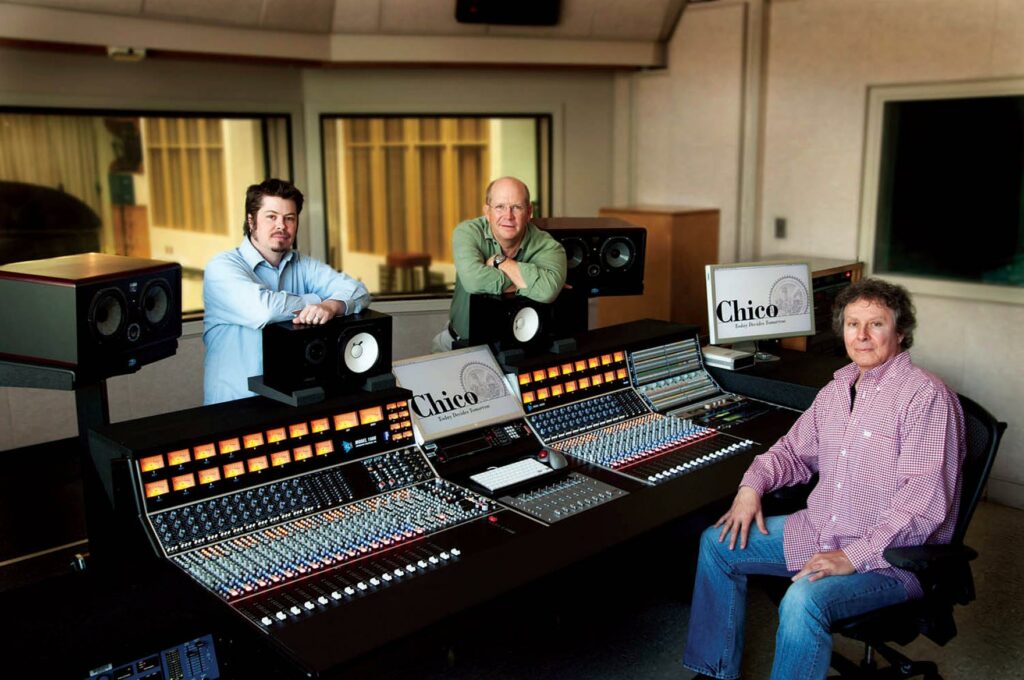Chico, California – Oct. 2010:
The Music Industry & Technology program at California State University, Chico gives its students an education that is quite different from the one offered by the mass of competing technical schools. Rather than focus on technology – either hardware or software – in an industry that is notorious for labeling gear as outmoded before it has even been paid off – Cal State Chico focuses on the underpinnings of great audio that never change: specifically, building ideal signal flow, listening, understanding music, and inspiring great performances. Thus, the department's recent purchase of an API 1608 fully-analog, 32-channel console for the heart of its main recording room is less a statement about gear and more an investment in a tool that will help instructors realize multiple aspects of the department's mission.
Plenty of prospective students understand the advantages of Cal State Chico's approach, and the program is officially "impacted," meaning far more students apply than can be accepted. "Of course, our students invariably learn to use hardware and software as a means to the deeper messages we instill," said Prof. Dann Sargent. "But our students certainly don't endure PowerPoint presentations on the most effective ways to make a beat splice in software environment X. It's easy to pick that kind of stuff up."
"The API 1608 really lets us teach signal flow to the students in a way that is tangible," said Prof. Keith Seppanen, chair of the music department and veteran sound engineer of Chet Atkins, Anita Baker, Whitney Houston and Michael Jackson, to name a few. "It is modular at its core, and we can encourage students to patch up what they need. We can arrange things so that it is impossible for them to be lazy in their thinking."
Professor Joe Alexander who also specializes in the recording arts program and whose independent work with a plethora of international superstar talents running the stylistic gamut for over thirty years added, "I didn't spend a lifetime in the industry to come here and play academic make believe and neither should students who are serious about their career and the future of audio. We all know that the price of admission to participate in audio has dropped dramatically. Now, most of our students come to us with plenty of experience with entry-level software and hardware. But at the same time, the standards of excellence have also dropped dramatically, given that some people feel an mp3 file now serves as the benchmark of quality. Thanks to API's long history and continued dedication to all-discrete analog circuitry, our API 1608 will recalibrate our students to a more respectable point of reference – the point of reference that helped capture some of the best recordings of all time."
"Durability was also a factor in our decision to outfit studio A with the API 1608," said Seppanen. "Our studio is used twenty-four hours a day, seven days a week. API has a legacy, so to speak, of building equipment that lasts. Rather than refresh every few years like a lot of programs, we plan to keep this console around for a long time." The API 1608 joins a host of outboard equipment, Adam and Focal monitors, Apple multi-core processor computer systems running Logic Pro 9 through an Apogee Symphony System used principally as a digital tape machine.
